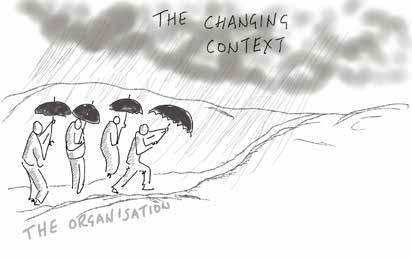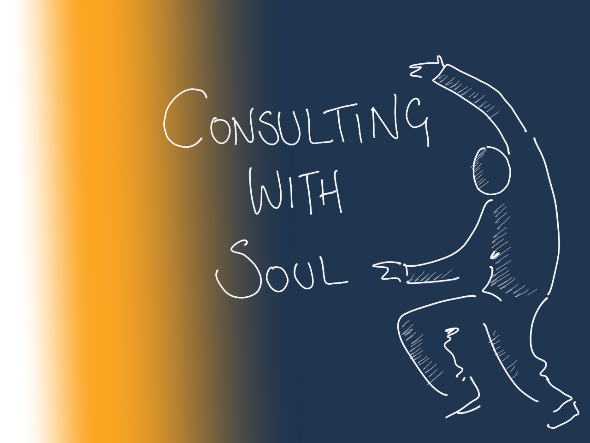By Rick James.
Consultants get a bad press, especially in international development. The UK Minister for International Development in the UK said last month that she will not “tolerate the profiteering by those who have created an industry out of the suffering of the world’s poorest”[1]. She has a valid point. Can we really justify using aid money to pay international consultants more than £1000 a day; with some CEOs of UK consulting firms taking home more than £250,000 per year? This seems obscene.
We give aid to address debilitating poverty, to confront climate change, to respond to people whose lives have been ripped apart by conflict and human rights abuses. Not to line the pockets of grossly profitable companies.
We must criticise loudly such excess. According to a recent blog, consultants are not only “overpaid”, but also “overrated and overused”[2]. But we must also avoid throwing out the baby with the bathwater. It’s naïve and foolish to assume all consultants (and consultancies) are the same.
A good consultant can bring a valuable outside perspective and catalyse positive change. Good consultants can make a big difference to civil society organisations (CSOs) by:
 Finding out how well an organisation is performing and whether its achieving its mission;
Finding out how well an organisation is performing and whether its achieving its mission;- Strengthening programme capacity (whether in water and sanitation, livelihoods, health, advocacy…);
- Strengthening the organisation itself, helping it adapt to and manage change (whether in strategy, structure, leadership, staffing or systems…);
- Improving external relationships, whether with funders, other CSOs, community groups or the government.
Local consultants are a particularly important resource for civil society organisations. They know the context and culture intimately, they speak the language, they are around to provide follow-through, and they usually cost far less in fees and travel.
So what makes the difference between a harmful and a helpful consultant?
A good consultant certainly has to be competent. They have to be able to listen well, analyse with insight and communicate in a compelling and accessible way. But it’s much more than mere competence. Effective consultants have self-less commitment to the client. They are people of integrity; with characters of courage and humility. At INTRAC we call them ‘consultants with soul’.
 We believe that if consultants:
We believe that if consultants:
- focus on the client’s change, not the contract;
- ensure the client genuinely owns and drives the process;
- get to the heart of the matter, beyond just symptoms;
- bring the best of themselves;
then we will see them catalyse long term change in civil society. So it’s not that consultants are overrated and overused, but that what consultants need to catalyse change is overlooked.
 Many countries lack a plentiful supply of quality consultants to support local civil society effectively. Nama Foundation felt that there were not enough good consultants to support their CSO partners in their priority countries – Lebanon, Palestine, Tanzania, Indonesia and Kyrgyzstan. They asked INTRAC to design and implement an initiative to develop quality CSO consultants – consultants with soul. The programme is called Consulting for Change (C4C). Since 2016, we have been working with a team of 40 national consultants from these five countries. They provide direct support to CSOs and indirectly to the communities those CSOs serve.
Many countries lack a plentiful supply of quality consultants to support local civil society effectively. Nama Foundation felt that there were not enough good consultants to support their CSO partners in their priority countries – Lebanon, Palestine, Tanzania, Indonesia and Kyrgyzstan. They asked INTRAC to design and implement an initiative to develop quality CSO consultants – consultants with soul. The programme is called Consulting for Change (C4C). Since 2016, we have been working with a team of 40 national consultants from these five countries. They provide direct support to CSOs and indirectly to the communities those CSOs serve.
The training takes place through a variety of methods:
- Three face-to-face modules lasting 1-2 weeks (over a 12 month period)
- Practical consultancy assignments in the field
- Mentoring and coaching support by Skype
- Written assignments
- Guided reading
- Webinars
- eLearning
- Action Learning Sets
The initial indications are encouraging. Participants are incredibly positive about the learning process so far. They believe that:
C4C is set to revolutionise the overall sector through laying the foundation for a new set of practitioners with a deeper understanding and wider view of the role consultancy can play and with skills in client and task management. This will help improve the situation in [my country] and have great impact on smaller and local civil society organisations.
C4C provides an opportunity to close the skills gap that [local] consultants have by offering sponsored training. Beyond improving the general quality of the work, the programme will introduce a human centred approach, moving consultants from being mere service providers to become agents of change in their own communities.
 In 2017 the first cadre of consultants will graduate from C4C. They are already collaborating together in country clusters and will set up consultancy networks. We believe they will provide a sustainable and quality service to CSOs in their country in the future.
In 2017 the first cadre of consultants will graduate from C4C. They are already collaborating together in country clusters and will set up consultancy networks. We believe they will provide a sustainable and quality service to CSOs in their country in the future.
This is only a start. We want to go beyond this. On the basis of this transformative experience, we aim to replicate C4C in other countries. We hope to develop an online version of the course for those unable to travel. We will also publish the course book ‘Consulting for Change’, bringing the key learning to a wider audience.
Contact ntitera@intrac.org for more information and watch this space for what happens next…
[1] The Times newspaper Dec 8th 2016
[2] https://aidleap.org/2015/03/30/development-consultants-over-paid-over-rated-and-over-used/
Illustrations by Bill Crooks.